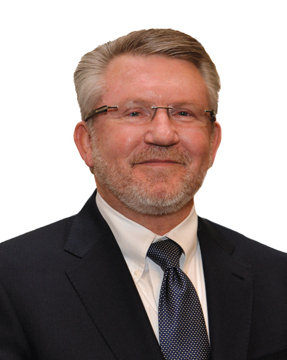 loading
loading
Light & VerityNew Div School dean is a preacher-scholar Michael MarslandGregory Sterling will take over as Divinity School dean in August. View full image
This year, three of the leading divinity schools in the country—Yale, Harvard, and Duke—chose new deans. Yet the man who on March 1 was announced as Yale’s choice, Gregory E. Sterling, says he only applied for one of the jobs. The reasons why Sterling decided on Yale, and didn’t consider the other schools, highlight the Divinity School’s position in elite theological education. More than its peers, it attempts to balance pluralism with a commitment to Christian ministry. “At Duke you have to be a Methodist,” says Sterling, a New Testament scholar and dean of the graduate school at Notre Dame. By contrast, Yale Divinity School has no ties to a particular denomination. “And I would really prefer to be in an ecumenical environment. But Harvard Divinity School has become more of a religious studies department than a divinity school. I hope that’s not unfair. What I mean by that is they haven’t in recent years been concerned with training people for ministry as much as they have been concerned simply with training people for the study of religion. “I am all for the study of religion, but I would much prefer to be within a context that identifies itself as Christian in an unambiguous and unapologetic way—without being narrowly Christian. I think that’s what YDS offers.” Harvard and Yale are both completing ten years under atypical deans. Harvard’s dean since 2002, William A. Graham, is a historian of Islam, while Yale, despite its emphasis on training Protestant clergy, has been led by Harold Attridge, a lay Catholic. The schools’ incoming deans are thus a bit of a throwback: Harvard has selected David N. Hempton, a church historian with a specialty in Methodism, while Sterling is, in addition to being a scholar, a preacher in the Church of Christ. That’s not the United Church of Christ, which incorporates what used to be the Congregationalist churches, the descendants of the Puritans. Rather, the Church of Christ is a decentralized nineteenth-century primitivist tradition that strives to recapture the spirit of the early church. For example, most Churches of Christ do not allow musical instruments in worship, instead relying on a cappella music. For more than 16 years at Notre Dame, Sterling commuted on Sundays to preach at a small church in Warsaw, Indiana. But he says he feels comfortable in many traditions. “I worship in a lot of different churches,” Sterling says. “I go to Mass on a fairly regular basis here at Notre Dame. Is this a theological problem for me? No. At Yale I will, I presume, worship in multiple contexts, as I have done here.” So Sterling is a Church of Christ preacher who has spent 23 years in a Catholic university. Any other ecumenical credentials? As a matter of fact, his scholarship focuses on Hellenistic Judaism and its influence on early Christians, and he is a leading scholar of the first-century Jewish philosopher Philo of Alexandria.
The comment period has expired.
|
|